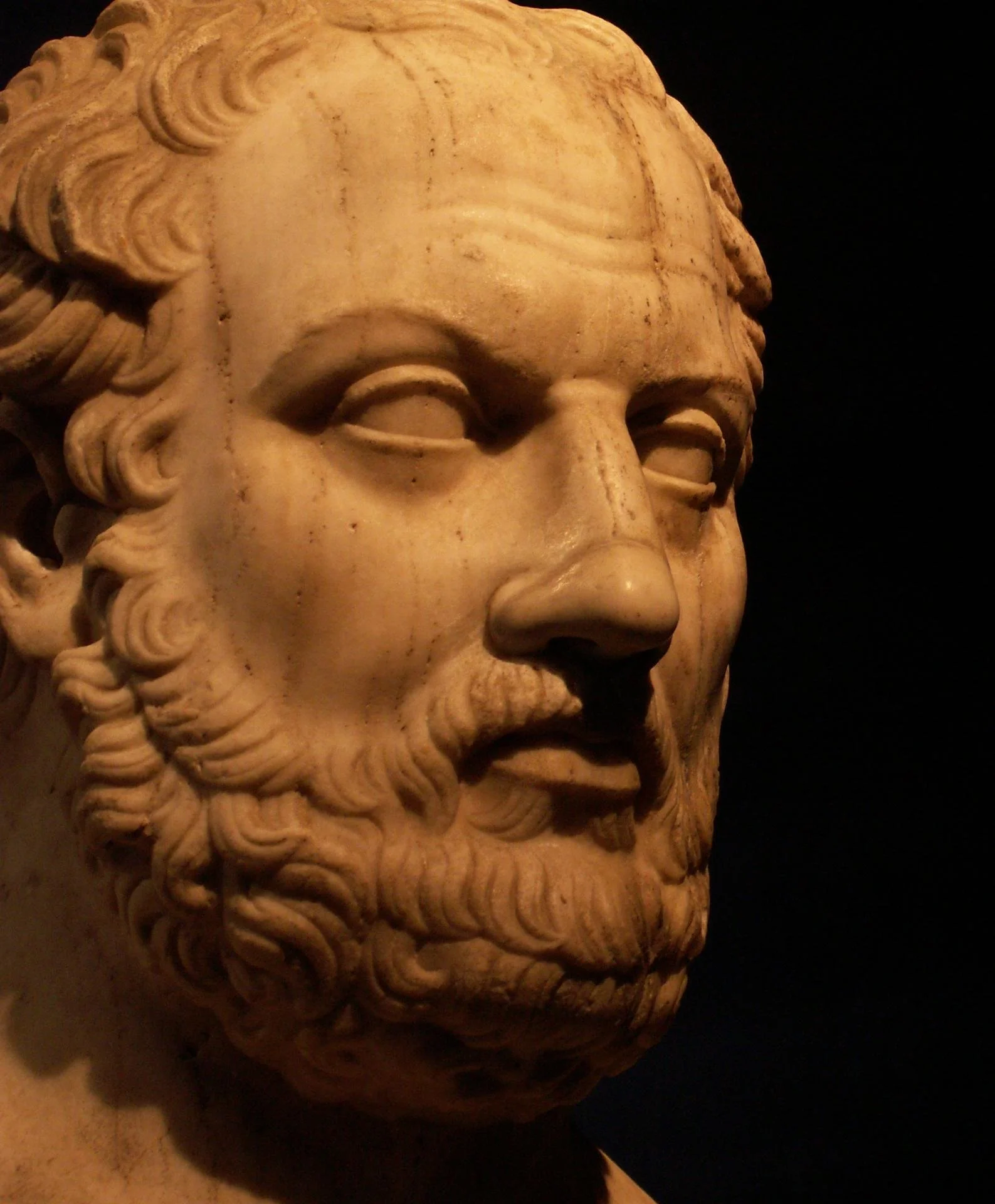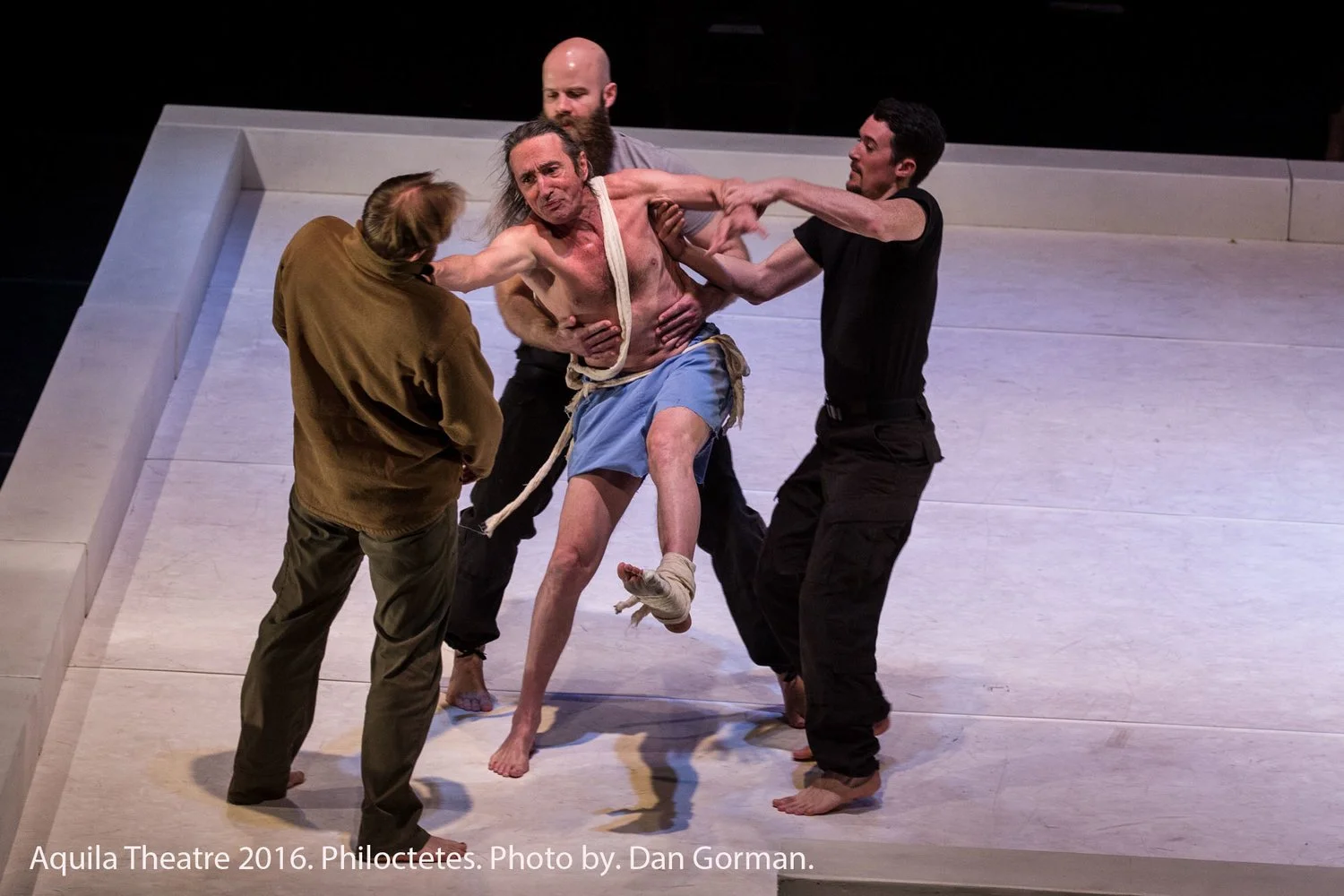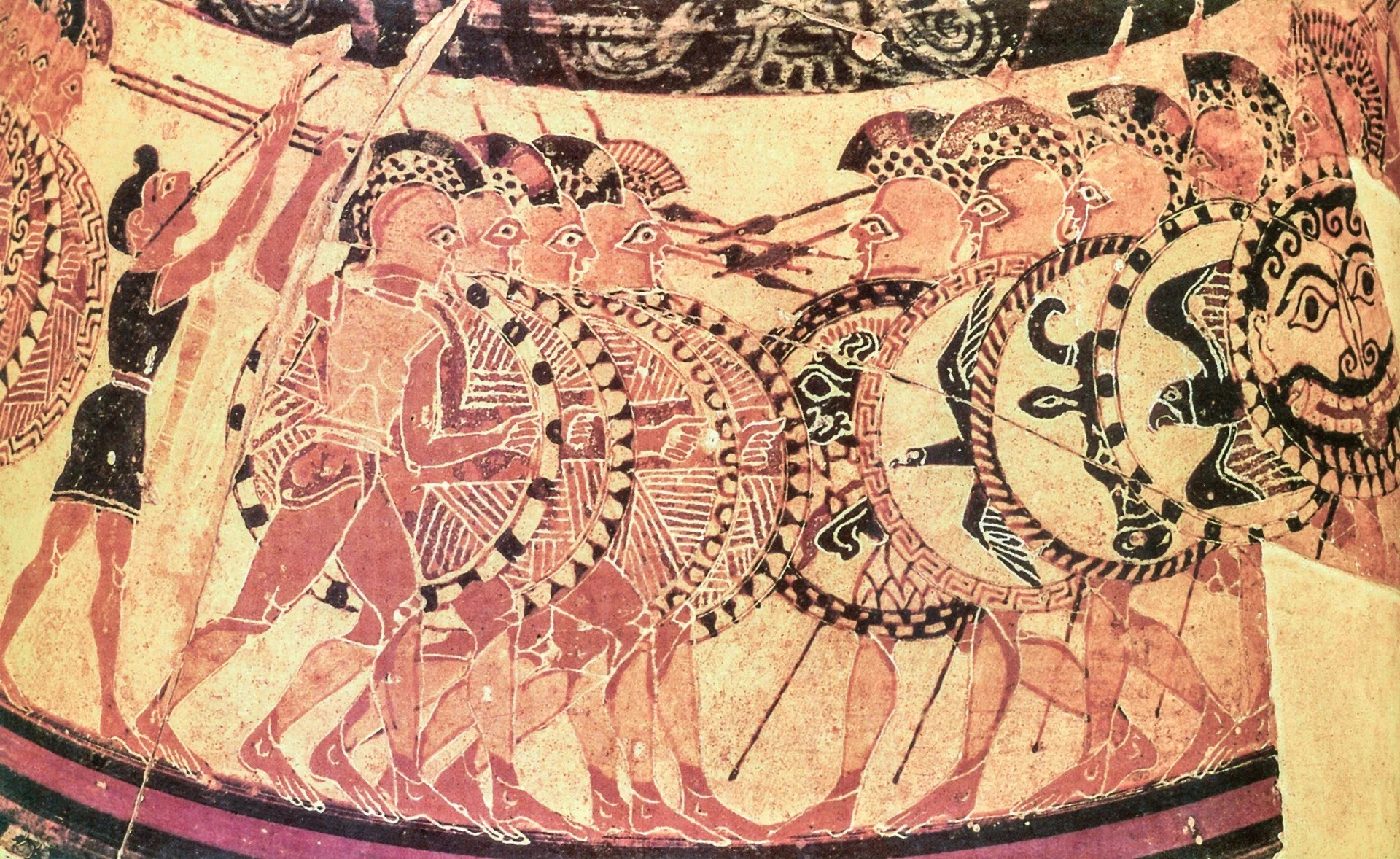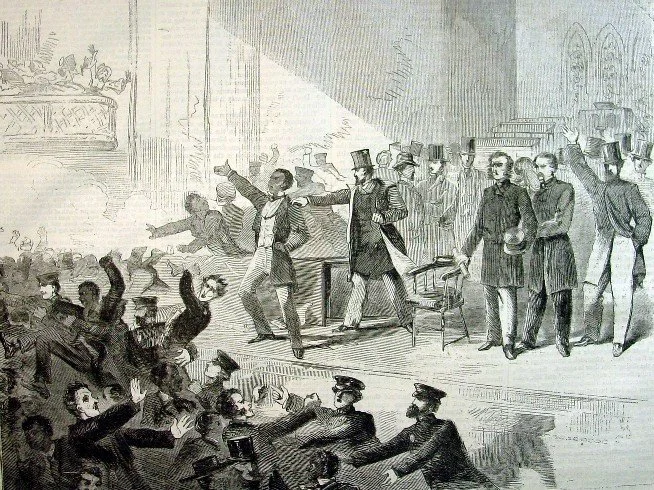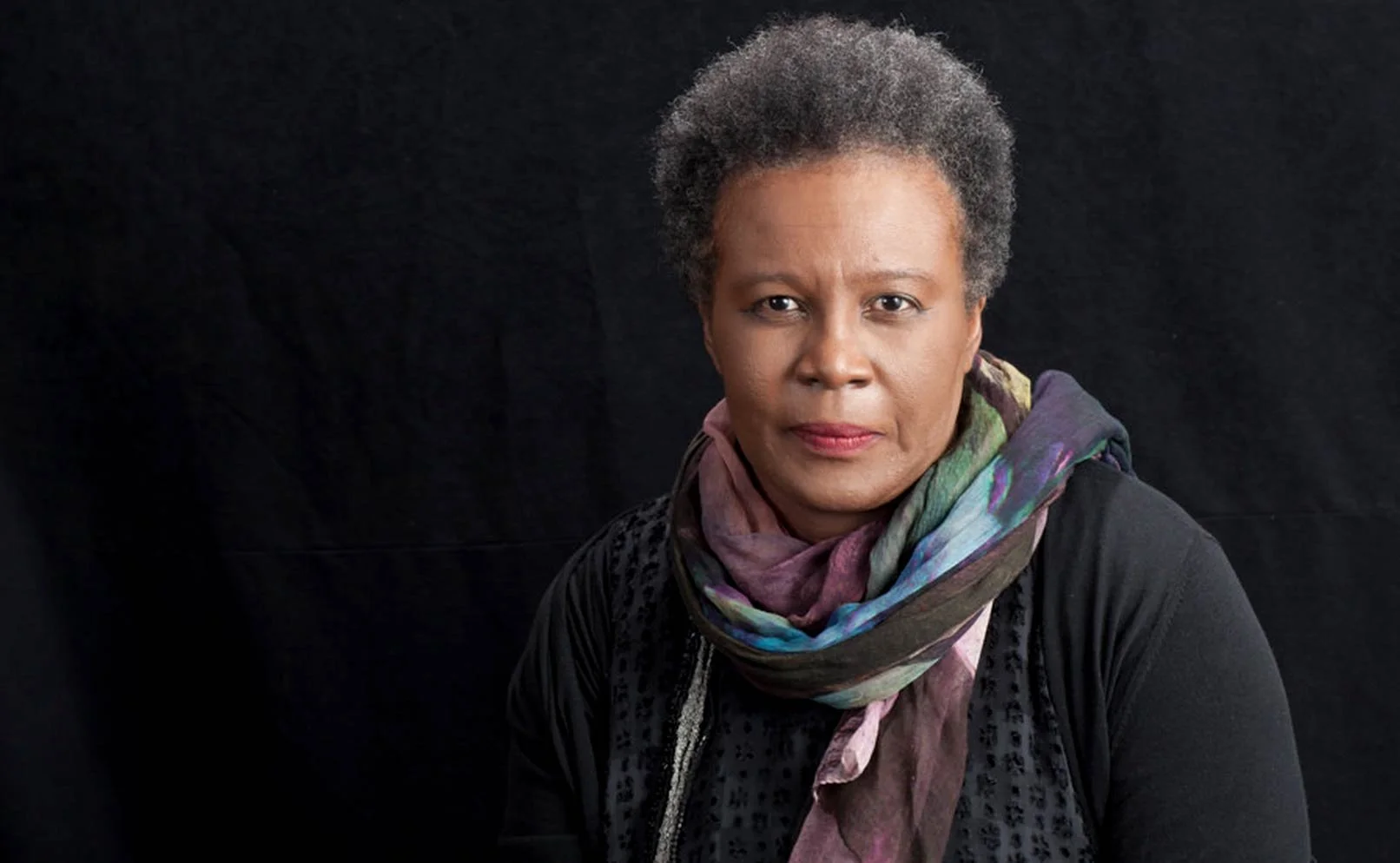A Scholar’s Essay on Homon0ia - Civic Identity
by
Emily Greenwood
Homonoia: Civic Unity
For the Athenians of the fifth and fourth centuries BCE no less than in modern American history, unity was a civic ideal most clearly articulated in times of stress. The literal meaning of the noun homonoia, the Greek noun which I am translating as unity, is “same-mindedness”. Depending on the context it is variously translated into English as “unanimity”, “unity”, “harmony”, “concord”, “consensus”, or “commonality of interest”. Historians of ancient Greece have argued that, as a political slogan, the interest in homonoia was fueled by the emphasis on reconciliation in the wake of the political revolutions that shook Athenian democracy in the last decade of the fifth century BCE: the short-lived oligarchic revolution of 411 BCE and the regime known as the Thirty Tyrants, which was in power for eight months in 404-403 BCE (see de Romilly 1972 for an influential statement of this view). In his account of the oligarchic revolution, Thucydides says that the Athenian military commanders who were loyal to the democracy made soldiers swear a blood sacrifice to accept the democratic government and to live together in homonoia (History 8.75.2). In a later passage, Thucydides recounts how the oligarchic conspirators negotiated with the leaders of the Athenian army to hold an assembly “to discuss homonoia” (History 8.93.3).
As one of the political institutions that marks a key hinge-point of the democratic process in US politics (federal elections), presidential inaugural rhetoric returns to the theme of civic unity again and again, from the pleading language of Lincoln’s inaugural address in March 1861 on the brink of civil war (“We are not enemies but friends. We must not be enemies”); to John F. Kennedy’s rhetorical anaphora in his inaugural of January 1961: “United, there is little we cannot do … . Divided, there is little we can do …”; to Barack Obama’s invocation of “unity of purpose over conflict and discord”, in his inaugural in January 2009. Lincoln’s appeal to friendship is suggestive since the discourse of civic unity often appeals to theories of civic friendship and the presumed closeness that flows from citizens having things in common.
At its most literal, same-mindedness resembles the close group cohesion and discipline of the military unit (Crowley 2012: 9). It is no coincidence that one of the earlier references to this word in surviving Greek literature is the passage in Thucydides where soldiers are made to swear an oath of homonoia in a military camp. We find an even stronger association between homonoia and a state of military emergency in the handbook How to Withstand Under Siege by Aineias the Tactician, dating to the mid-fourth century BCE, which describes tactics that those in power in a city should deploy in the event of a siege. Chapter 14 of this work addresses the topic of “how to secure unanimity (homonoia)” among a citizen body which is being besieged so that individuals are less likely to betray the city to the enemy.
As a political slogan with military overtones, homonoia is not without tension in democratic political rhetoric. The best illustration of this is in the language of Franklin D. Roosevelt’s inaugural of March 1933, which is notable for attempting to marshal its audience around a military concept of tight, cohesive discipline:
If I read the temper of our people correctly, we now realize as we have never realized before our interdependence on each other; that we cannot merely take but we must give as well; that if we are to go forward, we must move as a trained and loyal army willing to sacrifice for the good of a common discipline, because without such discipline no progress is made, no leadership becomes effective.
One extant Greek tragedy that grapples with the tension between military values of discipline and obedience and the political conscience of the individual is Sophocles’ tragedy Philoctetes, produced in Athens in 409 BCE. The character of Odysseus in the play is represented as a deceitful politician who appeals to the authority of the Greek army at Troy in an attempt to persuade the younger warrior Neoptolemus to deprive Philoctetes of his bow through deception. For Sophocles’ Athenian audience, the play posed difficult questions about the extent to which covert tactics of deception familiar from the training undergone by Athenian hoplites could coexist with civic values of integrity and accountability. It is no coincidence that Sophocles conceived of this play in the wake of the oligarchic revolution of 411 BCE which had unleashed a politics of suspicion within the body politic.
The image of the citizen body as phalanx is anathema to contemporary liberal democracies, which try to balance cultural ideals of diversity, including diversity of political opinion, religious belief, way of life, race and ethnicity, with political unity of purpose and appeals to a shared way of life. The political theorist Josh Ober has pointed out that, following the crisis of Athenian democracy at the end of the fifth century BCE, in the restored democracy of the fourth century BCE, “The term homonoia, as it was used by the political orators, generally implied a condition in which all citizens think the same thing, in which their social and political differences are submerged in a unified community of interest. Hence, the state becomes an organism with a single mind, a single will” (Ober 1989: 297). In the context of classical Greek political thought, the political theorist Arlene Saxonhouse has identified “the fear of diversity” as an important factor in the development of political theories that strive for an underlying or overarching unity and democratic theory was no exception (Saxonhouse 1992). Here we see the paradox of the political rhetoric of homonoia / unity: as an ideal, it tries to contain what is different and always potentially divided. As a slogan, homonoia was not exclusive to any single form of government. An indication of the interest in homonoia as a political value is the fact that the sophist Antiphon, who is widely thought to be the same Antiphon who Thucydides tells us played a key role in the oligarchic revolution, wrote a treatise entitled Concord (homonoia), of which some fragments survive (see Bonazzi 2020 for a recent discussion).
An important strand of American political rhetoric wrestles with the fragile ideal of democratic unity in the face of what Frederick Douglass described as America’s “national inconsistencies” in the speech “What to the Slave is the Fourth of July?”, delivered in Rochester in 1852. Douglass famously illustrated the schism in the body politic when he used the anniversary of the Fourth of July to argue that the blessings of Independence were not held in common by all members of America’s body politic. In the same period, the suffrage movement appealed for women’s unity to achieve full political rights, calling attention to another schism in the body politic. And to this day we continue to grapple with reminders of different tiers of citizenship within a citizen body in which all citizens notionally have the same rights. Here, too, Douglass’s words continue to reverberate. On October 22, 1883, Douglass gave a speech in Washington D.C. in which he responded to the news that the Supreme Court had struck down the Civil Rights Act of 1875; alluding to a verse in the book of Jeremiah, Douglass complained, “We have been, as a class, grievously wounded, wounded in the house of our friends” and in 2014, the narrator of Claudia Rankine’s Citizen: An American Lyric asks “How difficult is it for one body to feel the injustice wheeled at another?” (2014: 116). The question of what citizens have in common, what unites them, how alike they are and how much they like each other by virtue of being fellow citizens was a repeating question for classical Greek democratic theory as it is for ours.
Works cited
Mauro Bonazzi, M. “Ethical and Political Thought in Antiphon’s Truth and Concord”, in Early Greek Ethics, edited by David Conan Wolfsdorf: Oxford University Press, 2020: 149=168.
Jason Crowley The Psychology of the Athenian Hoplite: The Culture of Combat in Classical Athens. Cambridge University Press, 2012.
Josiah Ober Mass and Elite in Democratic Athens: Rhetoric, Ideology, and the Power of the People. Princeton University Press, 1989.
Claudia Rankine Citizen: An American Lyric. Graywolf Press, 2014.
Jacqueline de Romilly, “Vocabulaire et propagande ou les premiers emplois de mot ὁμόνοια”, in Mélanges de Linguistique et de Philologie Grecques offerts à Pierre Chantraine.
Klinksieck, 1972: 199-209.
Arlene Saxonhouse Fear of Diversity: The Birth of Political Science in Ancient Greek Thought. University of Chicago Press, 1992.
Prof. Emily Greenwood
Professor of the Classics at Harvard University. Previously taught at the University of St Andrews, Yale, and Princeton. She specializes in ancient Greek Literature and history and the different uses to which Greek and Roman Classics have been put in the modern world, with a particular interest in the literatures of the Black diaspora.
Bust of Thucydides (Roman Copy in Holkham Hall, Norfolk, 26)
Philoctetes (Richard Chaves), Aquila Theatre’s Warrior Chorus, Brooklyn 2016.
Greek hoplites depicted on the Chigi Vase (National Etruscan Museum, Villa Giulia, Rome inv. No.22679)
Frederick Douglass depicted (center) in "EXPULSION OF NEGROES AND ABOLITIONISTS FROM TREMONT TEMPLE, BOSTON, MASSACHUSETTS, ON DECEMBER 3, 1860" Winslow Homer Civil War Wood Engraving
Claudia Rankine (https://radioopensource.org/claudia-rankine/)

